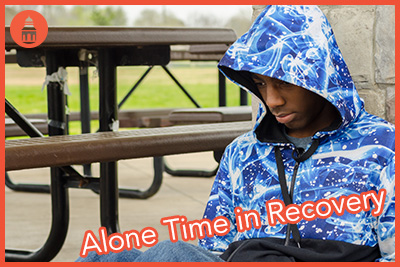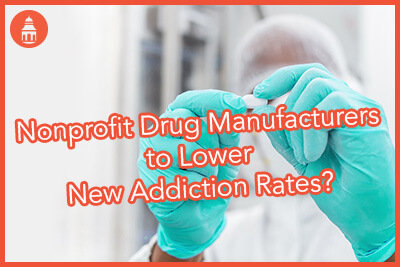
Evolutionarily speaking, stress is a positive thing. For a caveman living in the wilderness, staying in a state of high stress meant a watchful awareness of surroundings that could be lifesaving. If you were too laidback while foraging for food, for example, you might end up becoming the meal instead of bringing one home.
Even today, to a degree, some level of stress and/or anxiety can translate into avoiding unnecessary risk or making healthy choices that protect safety and wellbeing. A person who is worried about the risks of skydiving will never die in a skydiving accident if that stress and concern mean that they never go skydiving.
When it comes to recovery, a certain level of stress can be beneficial as well. It means that you are focused on potential triggers for relapse and being proactive in avoiding or mitigating those triggers whenever possible. A certain level of concern for exposure to triggers that translates into positive choices can actually help you stay sober.
In general, however, high stress levels are not considered positive – not for your physical health nor for your mental wellness and certainly not when it comes to your ability to remain relapse-free in recovery. Stress that causes you to feel overwhelmed, frustrated, or hopeless can itself be a trigger for relapse. In fact, for many people, high stress, whether chronic or acute, played a large role in the development of their addictions in the first place.
Is your stress level putting your recovery at risk, or is it helping you to stay on track and live a sober life?
Good Stress
When you have a positive amount of stress related to your sobriety, some people may feel that you are a little intense, but you know you are doing what you have to do to stay sober.
Signs that your level of stress is a benefit to you in recovery include:
- You actively avoid situations that have the potential for exposing you to risk of relapse. For example, you will avoid parties or other social situations where there is even a possibility that you will have access to alcohol or other substances.
- You are dedicated to keeping protective mechanisms in place that will help you to stay accountable. For example, if you must attend an event where drugs and alcohol will be available, or if the event has the potential to be emotionally stressful, you bring a sober companion with you to assist you.
- You maintain an active support group meeting schedule, working hard to maintain a support system in recovery.
- You are proactive in reaching out for help when you feel that you may be slipping off track and need assistance to refocus.
Unhealthy Stress
Unhealthy stress is defined by a consistently high stress level and by a mismanagement of acute stressors that you face each day. For example, if you always feel on edge and irritable, and you are quick to snap at people or assume the worst, then your normal level of stress may be unhealthily high. If you find that you have no ability to manage small stressors (e.g., getting cut off in traffic, an unwanted change in appointment times, receiving an unexpected bill) without exploding or otherwise feeling completely hopeless and overwhelmed, then you are living with high stress that can be detrimental to your recovery.
Some questions to consider when determining how your stress level stacks up include:
- Do your eating or sleeping patterns change regularly due to little stressors in your life?
- Is your initial response – even if you do not follow through – to drink or get high when you are faced with stress?
- Do you find that you often feel scattered or unable to focus?
- Are you experiencing physical effects of stress (e.g., thinning hair, brittle nails, etc.)?
- Do you find it difficult to relax?
- Do you frequently do or say things that are violent or aggressive when in a stressful situation or responding to someone when you are in a state of stress?
- Do you have a hard time enjoying yourself in life?
- Are you prone to acute illness (e.g., colds, infections, etc.)?
- Do you have panic attacks, insomnia, and other chronic issues that indicate anxiety or a potential anxiety disorder?
Time and Patience
With treatment for the addiction disorder, treatment for any co-occurring anxiety disorder if that is an issue, and a dedication to identifying and implementing positive coping mechanisms for managing stress, you can get your stress level under control. This process begins in recovery with medical attention if necessary and intensive therapeutic treatment of all kinds, but it builds in intensity when you begin the process of creating a new life for yourself in sobriety at home. In order to improve your ability to lower stress and stay sober, you can:
- Engage in holistic treatment options like tai chi, yoga, and massage, with an eye toward lowering your overall stress level.
- Learn positive coping mechanisms (e.g., positive communication, breathing techniques, mantras, etc.) that will help you to avoid spikes in stress levels that can occur when faced with an acute issue.
- Surround yourself with positive people who like to avoid drama and stressful situations and who are supportive of your recovery.
- Check in with yourself regularly throughout the day to assess stress levels and make adjustments as needed to relax.



